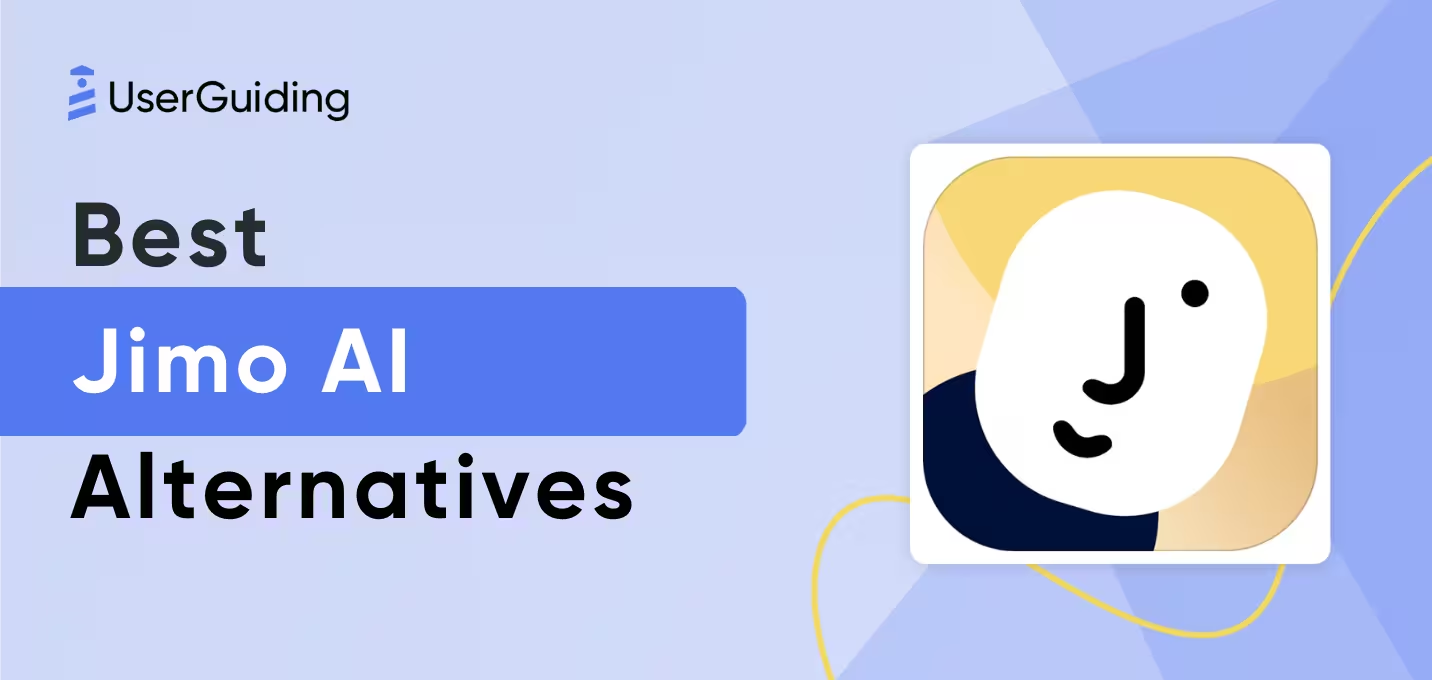

If you have come here to learn management systems, I have bad news for you.
This blog post is about "learning management systems." But if you are here to learn about learning management systems (LMS), welcome!
Wow, I used the word learn so much that it becomes weird to say so.
Semantic Satiation, look it up!
But before I drift away from the topic even more, let's see why you should use an LMS, what the perks of it are, and what some of the top examples are.
What is a Learning Management System?
Learning Management Systems, or LMS for short, are software or web-based technologies that are designed for planning, implementing, and assessing learning processes. They consist of a server for base functions and a user interface to be used by learners, instructors, and admins. The main goal is for a "teacher" to monitor the process for "learners."
What are the key features of a good LMS?
For better learning and managing experience, LMS platforms should include several key features. These are especially important for the development of the person using them.
Among these features are:
1- Artificial Intelligence
Artificial Intelligence (AI) is one of the best ways to personalize the learning experience for every person. With the help of AI, you can show people courses related to the topics they have studied before and formats that will best fit their style of learning.
2- Accessibility
You can not – and should not – call it online learning if your materials are not accessible to everyone in your company. This way, everyone can find the best learning environment for them.
3- Automation of Administration Tasks
A good LMS should make it easier for the admins. Automation of certain mundane tasks may help them with this regard.
4- More than One Function
Ease of use, as stated before, is vital for an LMS. An LMS, hence, must have all the systems you need. Of course, you can integrate third-party software into an LMS, but that will cost you money and time.
5- Personalization
There are different jobs in your company. Although there are some essential skills people have in common, different positions require different skill sets. The creation of personalized learning paths is significant to have in this regard.
For example, AI is one of the good ways to do so, as mentioned earlier. AI comprehends the way a person is going and offers them courses accordingly. Most of the recommendation-based apps and software use this technique.
6- Easy to Use, Easy on the Eye
No one wants to spend time on a platform/website/app that seems challenging and cryptic. Therefore, the LMS you use should be user-friendly, meaning that a person using it must get to the section they want.
Also, it should not strain one's eyes. The design has to be simple.
7- Course Management
Why would you get an LMS if you can't manage the courses you offer?
The basic standard here is that you should be easily able to add, modify, and change courses without breaking a sweat. However, a more advanced way to do so is to have automated management that governs the core courses you select and update them or modify them according to what you need.
A good LMS also helps you create more targeted course management – i.e., you should be able to create courses that are directly aimed at achieving one goal.
You might also like, Best Product Management Courses.
8- Integrations
Finally, your LMS should support necessary integrations that make your company's database updated. This is especially important for ease of management.
All in all, a good LMS should both come up with solutions on the admin side and offer you a great learner experience. This can be done in various ways, and all you have to do is find the one that suits your company's requirements best.

Why use Learning Management Systems?
As far as I can see, you have questions that are on point. The answer is that an LMS offers you a set of benefits that no other learning or teaching method can offer.
So without further ado, let's see them.
1- Organize the e-Learning Contents
Instead of having different materials on different platforms, LMS offers you a place where you can store all of your materials.
This way, you can easily create courses and never be bothered by getting materials from other platforms.
2- Unlimited Access to Materials
After you upload your materials to LMS, your employees can access them whenever and wherever they want. Either via smartphone or tablet, they don't have to wait for a training session and start learning.
3- See the Performance
An LMS lets you know how well an employee performs and their progress.
For instance, if they have problems with some topics and cannot reach a milestone, you can offer them extra materials with the help of the LMS.
4- Spend Less on Education
If you are to stick to more traditional ways of education, you will pay for an instructor – and their travel costs – the meeting software and printing the materials.
Now, if you are not so traditional, you will only pay for the LMS, and you don't have to worry about the costs of booklets. Online learners will be able to easily keep up with the materials you present them.
5- Less Time Consuming
Since the materials are more condensed, your learners will simply learn a topic in a 10-minute session instead of sitting in a classroom, or an online meeting, for 40 minutes.
LMS provides materials more directly. Also, an LMS makes sure to provide the necessary setting and arrangements for quizzes and exams. This means you don't have to worry about testing their development.
6- Up-to-date
The regulations that govern your material or the content of your material sometimes change.
If you pay strict attention to these two – and you should – then an LMS is priceless. The traditional way of updating material is actually hard, whereas an LMS can get the job done in minutes.
7- Expand Your Courses
Let's assume that there is new data or a new trend that highly concerns your business.
If you were to hold a classroom session, integrating this new piece of information would require rearrangement of the course schedule, new handouts, etc.
Now, with the help of an LMS, you can just open a new course and add the new information there. The only thing you will deal with is the LMS; otherwise, you would be dealing with the learners directly.
8- Social Learning Experiences
You can create online groups on social media platforms for your learners to share their experiences and ask questions about the topics they do not understand. This will make the learning experience more bearable and fun.
Top Learning Management Systems & Platforms
Now that we know the basic features and the reasons why an LMS is the right tool for your company's educational needs, let's see what the best in class are.
1- Xperiencify

We start this list with Xperiencify.
This LMS aims to make learning an addictive experience. In order to do that, they take gamification way too seriously.
They claim that they have better results – almost ten to thirty times better – than the industry in general. Their strength is focusing on the psychology of a learner.
Because they make use of what we call psychological triggers, learners are more likely to complete courses with ease. In fact, the first time they tested these triggers, 92% of users completed the course.
And what are these triggers?
Xperiencify triggers goals, urgency, social proof, curiosity, and recognition with features like:
- Countdown timers,
- Live leaderboards,
- Live simulation mode,
- Red light and green light monitoring,
Pricing
Offering to use the tool for free until you publish your course, Xperiencify has 3 plans:
- Launch - $49/month
- Growth - $149/month
- Scale - $499/month
2- GyrusAim

Take what should be an LMS and add supplementary webinars and analytics to it. This is what GyrusAim offers you.
Having been ranked #3 in top 20 LMS software for customer experience and #6 for user experience by eLearning Industry, GyrusAim is surely a leader in LMS. And its powerful features back this up.
- Certifications
- Competency Rating
- E-Learning
- Gap Analysis
- Need Analysis
- Individual Development Plan
- LMS Reporting
- Document Repository
Pricing
- Starter - Up to 100 Users, Custom
- Enhanced - Up to 300 Users, Custom
- Enterprise - Customized for Organizations, Custom
3- TalentLMS

Looking for simplicity? TalentLMS is your go-to option, then!
Being one of the best in the industry, - mind you, they work with eBay, Philips, and Duolingo - TalentLMS has the best take on simple designing.
The LMS aims to get a "yes" from everyone. So, we could say that this makes it the standard in the industry. However, this does not mean they are average; on the contrary, they excel in their area.
Among TalentLMS's top features are:
- Learning paths
- Blended learning
- Assessments engine
- Files repository
- Rich communication tools
- Videoconference support
Pricing
Up to 5 users and 10 courses, TalentLMS has a free option. There are four plans apart from that:
- Starter - $89 / month, up to 40 users
- Basic - $189 / month, up to 100 users
- Plus - $369 / month, up to 500 users
- Premium - $569 / month, up to 1000 users
- Enterprise - Custom quote.
4- Gurucan

This LMS stands out in this list due to what they offer.
Gurucan is an LMS platform that offers you to create your mobile app. Yes, you read it right.
You can create an app for your employees to learn new things via their smartphones. You might think that it would be hard to do so, and that it might require lots of coding knowledge. The thing is that you are wrong. Gurucan requires no coding experience, and its interface is just so simple to use.
Pricing
Gurucan has a free trial and 3 other plans:
- Expert - $99/month
- Pro - $149/month
- Guru - $199/month
5- Looop

It is Looop, not loop.
If one ever is to summarize Looop, they would certainly use the phrase "straight to the point."
Looop thinks that there should be no need for different gimmicks. Their aim is quite clear: make learning processes effective and give learners what they want. For Looop it is important to show critical points of failure, solve real problems in the workflow and drive better performance."
And it sure is fueled with a good set of features to run that goal:
- Automation
- Analytics + User insights
- Resource builder
- Integrations
- Workspaces
- Surveys
Pricing
Looop offers four plans but it doesn't reveal the pricing; thus, you'll need to contact them for more information.
6- Moodle

Almost everyone hears Moodle at some point in their lives.
It is one of the most used LMS in the industry – ranging from universities to large corporations. It is an open-source learning management system that offers lots of features. The customizable nature of Moodle offers a variety of different ways to make the learning process easier.
The integrations, such as Zoom and Panopto, are an essential part of Moodle. It is one of the prime examples of what a learning management system should be.
On top of everything, Moodle has really cool features like:
- High flexiblity and accessibility
- Forum, wiki, workshop, blog creation
- Assignments and quizzes
- Calendar
- Badges and certificates
- Mobile app
Pricing
Moodle has a free trial and free version, anyone can start their own moodle. However, if you need Moodle for a bigger project, you will need to contact Moodle or a certified service provider for pricing.
7- 360 Learning

360Learning aims to create a learning environment that is focused on the people.
What does that mean? Let's put it differently.
They believe in a collaborative culture where people can learn from other people. So, their take on a standard learning management system highly includes collaborative tools. If you want unity throughout the learning process, 360Learning is the right choice for you.
Some of 360Learning's most prominent features are:
- Cheat Sheets
- Video Recording
- Content Integrations
- Collaborative Editing and Learning
- Challenge Mode
- Mobile Learning
- Paths, Assessments, and Certificates
- Communication Tools
Pricing
360Learning offers a free trial and two plans:
- Team - $8/user per month
- Business - Custom
8- Easy LMS

Do you like easy, simple interfaces?
If so, Easy LMS is the right choice for you. It's literally in the name.
Being user-friendly is one of the strengths of this learning management system. You can easily create courses and import them to your website.
Since it does not require too much effort to create tests and courses, you might think that they will be generic and boring. But guess again. The content you create with Easy LMS is guaranteed to be fun and engaging.
Top features of Easy LMS include:
- Progress tracking
- Automatic certificate generation
- Course slide timer
- Overview reporting
- Data analytics
- Tool integration
- Customization
Pricing
Easy LMs has a 7-day free trial and three plans you can choose from:
- Business Owl - $105/month
- Corporate Owl - $159/month
- Enterprise Owl - $275/month
9- Nimble LMS

Nimble LMS has unique tools that attract the attention of any user.
What's more, they are highly focused on customer support, so much so that you don't feel alone or abandoned while having problems with creating a course.
Nimble also presents you with a unique opportunity. After you create your courses, tests, materials, etc., you can sell them in a shop. So, you can sell your expertise to other companies or offer certification programs to people.
So in the long run, you can cover the expenses of creating learning materials.
Nimble LMS offers:
- Quick setup
- Efficient management, tracking and reporting
- Analytics and learner insight
- Free Nimble Author 2 licence to create your courses
- Integrations and Add-ons
Pricing
Nimble has a unique way of pricing depending on the number of learners. An annual plan starts from £1,800.00/150 users and goes up as you go.
And if you really want to go up as you go with fewer learners, there is the PAYG (pay-as-you-go) plan that has a pricing starting from £6.50 per enrolment.
10- LearnWorlds

The final LMS in this list is LearnWorlds.
This LMS is possibly the most detailed learning management system on this list. What makes it so?
First off, like Nimble, you can sell the courses and materials you create to other people and businesses. It has a robust website builder that enables you to create a website that suits your company's identity. Last but not least, the built-in video editor and automated video transcripts are the things you will highly benefit from if you plan to integrate videos into your courses.
Some other features are:
- Automatic video transcription
- Interactive video creation
- Branded digital certificates
- Question banks
- Various assessment models
Pricing
LearnWorlds offers a free trial for three of its plans which are:
- Starter - $24/month
- Pro Trainer - $79/month
- Learning Center - $249/month
- High volume & Corporate - Custom
Bonus: Leverage learning with UserGuiding 🚀
Okay, yes we get it, LMS is cool.
But how many of them let your users/learners get hands-on experience? With interactive guides too!
That is why UserGuiding is the perfect addition to the tool shack if you want to guarantee a successful learning process for users/employees/learners.

Get your hands on:
✅ Product tours and walkthroughs,
✅ Checklists,
✅ Hotspots and tooltips,
✅ NPS surveys,
✅ Resource centers,
✅ Powerful analytics
✅ Segmentation and targeting,
👉 Schedule a demo TODAY 👈
Conclusion
So, here we are – at the end of another blog post. Now, there should be no questions about what a learning management system is and what the top learning management systems in the industry are. Initially, you might think that an LMS is not worth the effort, and traditional ways are always the better options. But, things progress, and traditional ways are not the ways to go for a number of reasons.
Now it is high time for you to choose an LMS and start the learning process for your employees.
If you like this article, you can also read: Self-paced Learning.
Frequently Asked Questions
Which is the best LMS platform?
Frankly, there is no such thing as the best LMS platform. Although we know what a good LMS platform looks like, calling it the best is actually relative. The best one is the one that suits your needs the most.
How does an LMS work?
An LMS consists of two parts. There is a panel for admins to upload materials, create courses and tests, and make arrangements. There is an interface where people can attain these courses and interact with other people.
What are examples of LMS?
Moodle and TalentLMS are some of the most used LMS in the industry. They are widely known and have some unique features.















.svg)
.svg)
.svg)
.svg)
.svg)











.svg)
.svg)




.png)















